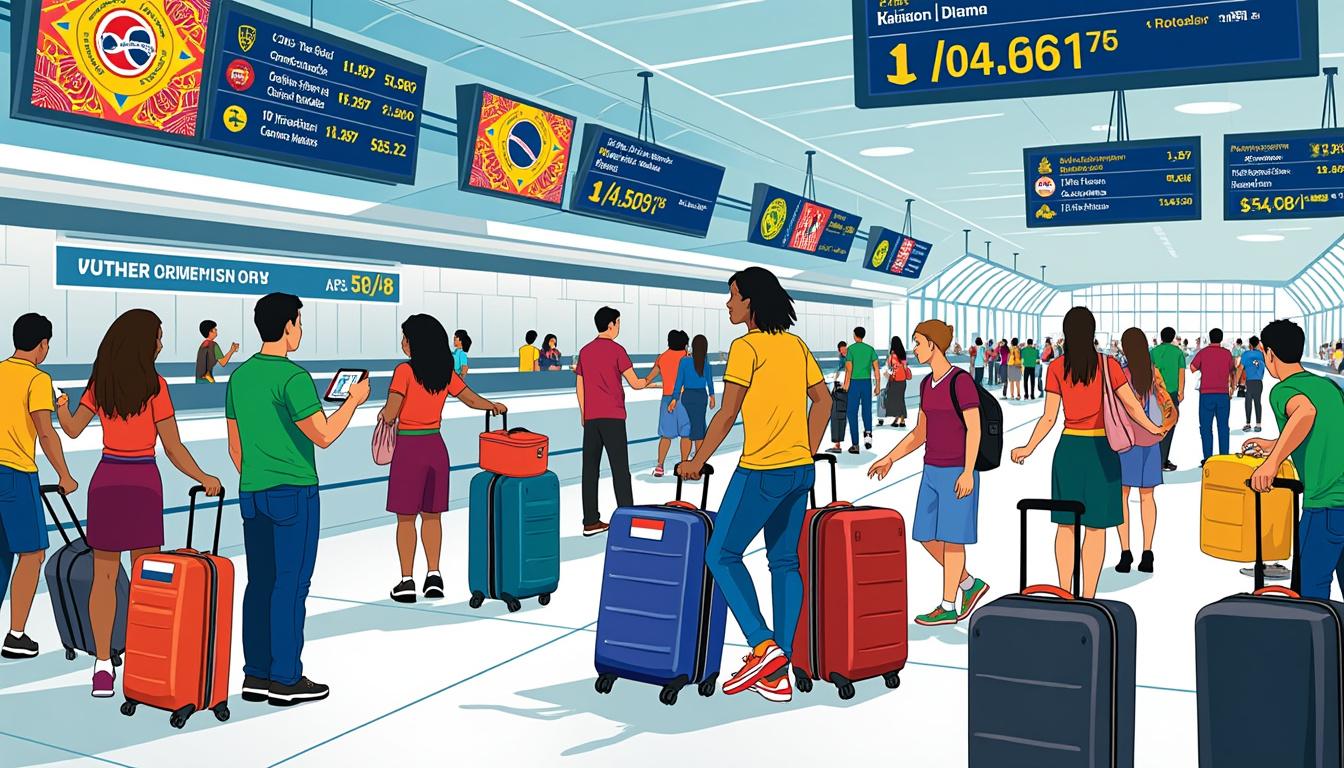The excitement for the upcoming FIFA World Cup is reaching fever pitch, but with it comes the daunting reality of soaring travel expenses. Fans eager to witness this global spectacle face a significant financial hurdle as flight prices, accommodation fees, and local transportation costs all trend upwards. This dynamic surge in costs can quickly inflate budgets, making smart travel strategies essential for those determined to partake in the event without breaking the bank.
Key Factors Driving the Rise in FIFA World Cup Travel Prices
Understanding the reasons behind the escalating travel expenses is crucial to developing effective cost-saving measures. Several intertwined factors contribute to these increases:
- High Demand and Limited Supply: With millions expected to travel across multiple host cities, competition for flights and lodging pushes prices sky-high.
- Dynamic Pricing Models: Airlines and ticket vendors applying real-time pricing adjustments react to demand spikes, as seen on platforms like Skyscanner and Hopper.
- Multi-city Itinerary Complexities: The expansive 2026 World Cup spans 16 cities across three countries, increasing travel distances and related costs.
- Seasonal Peaks: The tournament coincides with peak travel seasons, amplifying the scarcity of affordable options.
| Cost Aspect | Typical Price Range | Impact Factor | Key Booking Platforms |
|---|---|---|---|
| Flight tickets | $800 – $2,500 | Demand surge, dynamic pricing | Expedia, Kayak, Skyscanner, Hopper |
| Accommodation | $100 – $400 per night | Peak season, multi-city stays | Booking.com, Airbnb, Priceline, Hotwire |
| Local transportation | $30 – $150 per city | Distance, mode of travel | Tripadvisor, Travelocity |
Practical Approaches to Beat the Price Surge on Flights
Securing affordable flights requires vigilance and savvy tactics:
- Book Early: Leverage early-bird offers often available on Expedia and Booking.com to lock in better rates.
- Flexible Travel Dates: Use tools like Hopper and Skyscanner’s fare calendars to identify the cheapest travel windows.
- Consider Alternative Airports: Flying into nearby airports with lower fees can yield significant savings.
- Set Price Alerts: Utilize platforms that notify users of fare drops for monitored routes.
- Take Advantage of Layovers: Sometimes connecting flights can reduce overall cost despite longer trip durations.
Additionally, savvy travelers benefit from understanding seasonal travel nuances and adopting seasonal travel tips to circumvent price spikes commonly seen around major events.
Optimizing Accommodation to Match Your Budget
Accommodation often absorbs a substantial chunk of travel expenses during the FIFA World Cup. Strategic planning can mitigate these costs:
- Book Entire Stays Early: Proactively reserve lodging through Airbnb or Booking.com well in advance to avoid price escalations.
- Stay Outside Host Cities: Nearby towns often offer more affordable options and quieter environments.
- Utilize Shared Lodging: Consider shared accommodations or hostels if travel style permits.
- Track Deals on Priceline & Hotwire: Last-minute deals might pop up but carry inherent risks.
- Leverage Trusted Reviews: Tripadvisor reviews help choose value-packed yet safe lodging, ensuring a balance between cost and experience.
| Accommodation Type | Average Nightly Cost | Pros | Cons |
|---|---|---|---|
| Hotel | $250 – $400 | Convenience, amenities | Costly during events |
| Airbnb / Vacation Rental | $120 – $300 | More space, local feel | Varied quality |
| Hostel / Shared | $40 – $100 | Budget friendly, social | Less privacy |
Preparing a budget for international adventures and packing efficiently, such as adopting smart toiletry bag tips, also streamline expenses and enhance the overall travel experience.
Local Transport: Navigating the Host Cities Affordably
The geographic spread of 16 host cities across the U.S., Canada, and Mexico demands efficient local transport planning to keep budgets in check.
- Use Public Transport Passes: Buses, metros, and trams offer economical options; city passes can provide unlimited rides.
- Carpool or Ride-Share: Group rides via apps reduce costs and provide social interaction opportunities with fellow fans.
- Multi-city Transport Passes: For intercity travel, passes covering multiple cities often bring savings.
- Walk or Rent Bikes: For short distances, especially around stadiums, these options are wallet-friendly and eco-conscious.
- Plan Routes Ahead: Maps and apps help avoid overly expensive transportation alternatives.
| Transport Mode | Typical Cost | Best Use Case | Booking Sources |
|---|---|---|---|
| Public Transit Pass | $10 – $40 per day | Inside host cities | City transport websites, Tripadvisor |
| Ride-Sharing | $15 – $50 per ride | Short to medium distances | Mobile apps, local providers |
| Intercity Bus / Train | $25 – $100 | Travel between host cities | Travelocity, Expedia |
Planning tailored transport strategies complements cost-cutting travel tips for summer events and ensures fans stay mobile without overspending during this historic tournament.
Frequently Asked Questions About FIFA World Cup Travel Costs
- Q: When should I start booking flights and hotels to get the best prices?
A: Ideally, bookings should begin at least 6-8 months before the tournament, leveraging early deals on sites like Expedia and Booking.com. - Q: Are there affordable lodging options near host stadiums?
A: Staying just outside host cities or opting for Airbnb and hostels can provide significant savings while remaining accessible. - Q: How can I monitor flight prices efficiently?
A: Use fare alert features available on Skyscanner and Hopper to get notified of price drops on your preferred routes. - Q: What local transport options are best for traveling between multiple host cities?
A: Intercity buses and trains booked via Travelocity or Expedia offer cost-effective, comfortable travel for fans planning multi-city visits. - Q: Are there strategies to reduce expenses on meals and incidental costs?
A: Preparing simple meals if accommodation allows, and researching affordable dining options in advance through Tripadvisor can help manage daily expenses.


